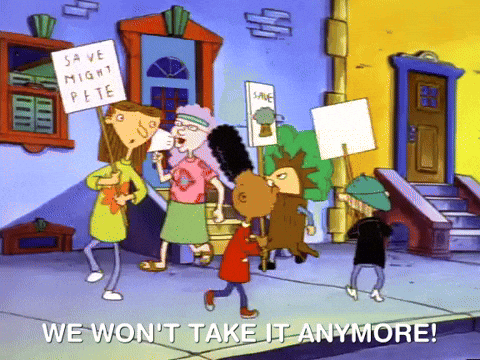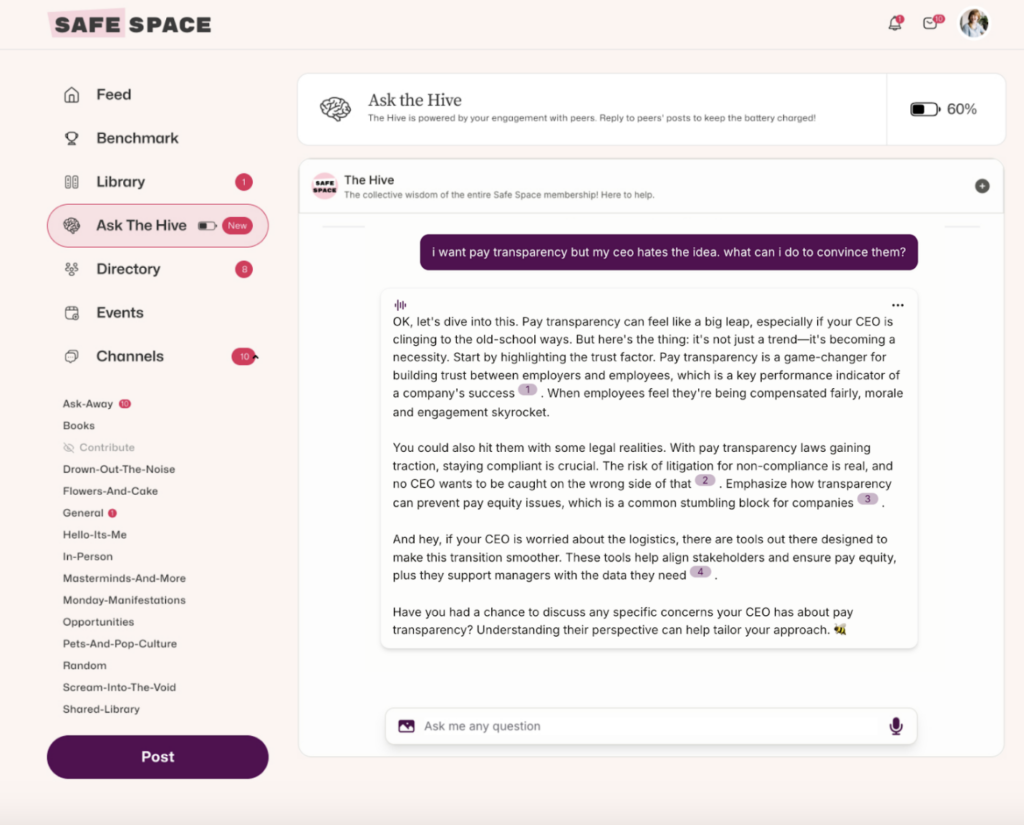🪃 rehires & DEI

✍🏾 We have a problematic associate who transferred to another department. She applied for her old position. How can we politely tell her no for the position?
Context: Position for a parts, sales, service company
📣 Sheila Paquet, HR Manager @ Villani Landshapers:
I’m curious about the timeline of her being “problematic”? Is this something that started in the old position and carried into the new? Have either of her managers (old/new) spoken to her about the concerns? I would definitely have the conversation with her (in person) and express that there was a reason she moved on from the position and we’d rather set her up for success in her new position as opposed to recreating whatever issues there were in the old position.
📣 CJ Hoffman, Principal Training Manager – Organizational Development @ CRST The Transportation Solution, Inc.:
It sounds like (a complete assumption on my part) some important conversations have been avoided, as we all often do. Allowing problematic employees to transfer to other positions (if the root of the issue is NOT position fit) is like sweeping our problems under the rug and hoping somebody else will fix the problem. Unfortunately, I don’t believe in hope as a strategy.
I know there is always more to the story, however I would hope a conversation about the coaching/development needs or behavioral concerns was had with the other manager prior to her last transfer.
Regardless, at this point, there is no avoiding this important conversation. I would prepare a list of the concerns that led to this employee being labeled as “problematic,” being sure to focus on specific BEHAVIORAL examples. Do not make this about “attitude,” “personality,” or other personal attributes. It would be wise to keep the list narrow, to 2 or 3 most important issues so it doesn’t feel like an attack by a dump truck for the employee. Then schedule a time to sit down and have this conversation.
I would lead with questions about what led to the last transfer and why this employee is seeking to return to the team. Then share your prepared concerns.
Not envious of the task at hand, best wishes for a positive outcome.
📣 Luke Willman, Engagement & Culture @ St. Elizabeth Physicians:
Certainly can’t use the tried and true, “we have decided to move forward with other candidates whose qualifications and experience more closely align with current needs” if the applicant had the job you are posting! haha
Hopefully, the job description was updated after their departure.
What about, “Thank you for your interest in returning to [INSERT DEPARTMENT]. At this time, we have decided to pursue candidates whose skills best align with the future direction of the team. We appreciate the time and effort you put into your application and wish you continued success!”
Whatever you decide, it’s important to keep the tone polite, professional, and neutral – focusing on the business decision rather than the individual’s past behavior. And make sure your chain of command is aware (and uses) the same language used in the final version if they escalate their concerns. Making sure everyone is aligned so the message is consistent will help you avoid issues.
But this specific case (and what I view as a very problematic interview-them-to-have-a-tough-conversation strategy) aside, @Alissa Bauler brings up a GREAT point:
JOIN 150K+ HR LEADERS
Get insights, learnings, and advice on how to build companies and cultures that people actually love.
No spam. Unsubscribe any time.
The real problem isn’t just this associate applying back into her old position. We obviously don’t have all the nuanced details, but there is a possibility that the associate was managed out of a DEPARTMENT (not out of the ORGANIZATION) without addressing the root cause of her problematic behavior in that original role. By transferring the associate instead of holding them accountable, a leader made the performance issues someone else’s problem. This creates a ripple effect in culture – undermining accountability and trust across departments, signaling to other employees that problematic behavior won’t really have consequences, and forcing other teams to absorb unnecessary tension and disruption.
Senior leadership should recognize that this situation may have been created by avoiding proper performance management earlier in their time with the org.
Safe Space members can join this discussion here. Not a member yet? Apply to join here.

✍🏾 Can the HR profession get back to focusing on core HR related business issues and stop being an activist for any multitude of causes?
Context: I’ll use DEI as the most obvious example. Our task is to find the best and brightest without consideration of x y and z.
📣 Alex Clermont, Director of People and Culture @ Steppingstone:
Well I think this really depends on what you consider the distinction here. The task of DEI is also to find the best and brightest, by understanding the systems we have in place have created artificial barriers for many people and that the best and brightest are often stuck behind those barriers. If I’m talking to 20 people with the same background, perspective, experience, and insight, then I’m doing a real disservice to the task of finding top talent.
So what DEI tasks do you see as being distinct from core business issues, would be my question. For instance I think the places DEI shows up most in my work are recruiting (for reasons I just listed), compensation studies (for legal reasons), and employee relations (understanding culture isn’t a one size fits all initiative and finding ways to retain high performers while keeping morale high).
Those all seem like core HR functions to me. If you’re spending time on something else that doesn’t feel like a business function, it would be good to identify what those are and dig into whether they’re serving a purpose that you just don’t personally enjoy (totally fair – we all have parts of our jobs we don’t like) or if they do objectively waste time, and start a conversation from there to the powers that be about why you’re doing certain things and whether your time could be better spent. Without more details it’s really hard to say, but your question on its face doesn’t make a ton of sense to me, personally. In my job I’m not specifically spending time as an advocate, I’m just doing my job well and certain principles are inherent to that, even if they’re currently politicized.
📣 Lia Seth, Director of People @ Cylinder Health:
@Alex with the mic drop!! The only thing I’ll add: if you’re currently being asked to take on the meaty work of equity management – which includes compliance, employee relations, performance, compensation, and more – and that’s not aligning with what you want out of your career, you can always find a more operational HR role focused on rote data entry or records management that doesn’t include decision-making responsibilities.
📣 Maleea Meden, HR Director @ World Centric:
The question inspires many more questions. It’s a bit concerning, or confusing, to think of DEI efforts as activism when it should be embedded in almost every aspect of what HR is, all for the benefit of the business. The acronym became politicized in the last 5 years, but the concepts have been core to the function since I entered the profession in 1999 (yikes, that’s gone by fast).
If your company is asking you to do something you’re not comfortable with, you might want to figure out a way to transition out of that aspect of the job.
Safe Space members can join this discussion here. Not a member yet? Apply to join here.


